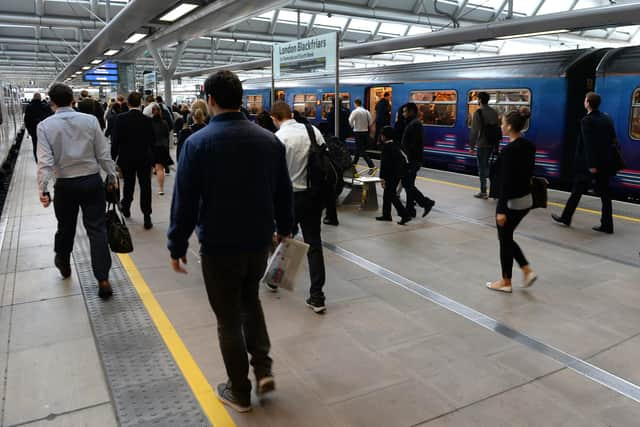Ticking pensions timebomb facing middle classes can't be ignored any longer: Jayne Dowle
And here I am. Still working, and I thank my lucky stars to have gainful (self) employment. And likely to be working for at least the next decade, hopefully, because there’s certainly not enough in my modest private pensions to live on should I decide to retire, and I won’t be able to access my state or paltry teachers’ pension from my university lecturing days until I’m 67.
If you were around in the mid-1990s, you might remember all that seductive guff about work/life balance, and we’d all be working for far less time in the future, to enjoy comfortable retirements cruising the world and tending our chrysanthemums.
Advertisement
Hide AdAdvertisement
Hide AdIt hasn’t quite worked out like that, for millions of middle-aged people. And now we hear, from the Institute of Fiscal Studies (IFS), that 90 per cent of us, in middle class, middle-earning professions, simply aren’t saving enough, or indeed, saving anything at all, to enjoy a comfortable retirement any time soon.


I always listen when the head of the IFS, Paul Johnson, speaks, because this astute economist is almost a direct contemporary of mine. In the year above me at Keble College, Oxford, he took a first in PPE (politics, philosophy and economics) and went on to carve a stellar career in government and for a number of financial organisations.
In the late 1990s, when I was faffing about writing about pop music, he was an advisor on pensions and welfare reform in the Cabinet Office. So I trust what he says, and he says that people in their thirties and forties are heading for uncomfortable retirements as the wealth of today’s pensioners has bred complacency in government.
How ironic is that? Can government ministers really see no further than their own publicly-funded nest eggs, too often supplemented by lucrative earnings from second or third jobs and private investments?
Advertisement
Hide AdAdvertisement
Hide AdThe IFS says that the wealth of the baby boomer generation coupled with policies such as the triple lock means today’s pensioners are richer than average, with only 18 per cent in poverty, compared with 31 per cent of families with children.
As for those of us in our fifties, we’ve spilt into three camps. There are those thrifty - or wealthy - individuals who have regularly paid the recommended 15 per cent of their earnings (from the Turner report into pensions two decades ago) into a private pension scheme. I have a friend like this, who joined a magazine company scheme at 21, transferred out when she left the job and hasn’t missed a monthly top-up since.
Then there are those lucky enough to work for a large company or the public sector, with generous employer contributions and ideally, still a final salary scheme to guarantee a decent whack. I’ve got friends like that too, and I’m not jealous, honestly, as they dabble about with a bit of consultancy in their late fifties and plan their round-the-world trips.
And then there are the rest of us, dreaming with our fingers crossed that tomorrow is another day as we’ve worked hard and spent hard, bringing up our children, paying mortgages, meeting head-on the constantly rising cost of living. Is it any wonder so many people simply haven’t saved enough, and can see no way of doing so any time soon?
Advertisement
Hide AdAdvertisement
Hide AdMr Johnson says “the money has got to come from somewhere” but adds: “Very few people feel that now is the moment to put lots more in as we face the cost of living squeeze.”
The words “ticking” and “timebomb” should in fact send a chill, not just through our own spines, but those belonging to ministers too. Hordes of impoverished citizens in their sixties and seventies in less than a decade’s time does not make for a healthy economy.
That brutally honest debate about pensions, which we’ve all been ducking for years? We need to have it. Workers, bosses and government may all have to contribute more cash to avoid an issue that has been “put on the backburner” by ministers, the IFS warns.
This is important, because there are yet more hard truths to come.
Advertisement
Hide AdAdvertisement
Hide AdUnder current plans, in another two decades, between 2044 and 2046, the state pension age will rise by another year, to 68. Earlier this year, reports that ministers planned to bring forward this increase to 2035 caused panic, especially with a General Election on the horizon, and riots in France over raising the pension age.
Still, it is clear that the only way is up, and not inconceivable that our children and grandchildren will be working well into their seventies.
Is this really why the government refuses to engage on the big retirement timebomb? Because eventually, pensions will be a concept as outdated as a horse and carriage? If this is the case, then we all need to wise up, and fast.